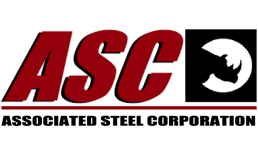Stainless Steel Basics Part 3
There are Austenitic Grades (200 and 300 series), sometimes referred to as type 18-8. The 300 series, particularly types 304 and 316, are the most used grades in maintenance applications. • Grain Type of Austenite • Generally non-magnetic (will not attract a normal magnet) • Not hardenable by thermal treatment (Heat Treating) • Work-harden under impact, i.e. Cold work, strain hardening, etc • Generally functional up to about 1500F+ service temp. There are Martensitic Grades […]
